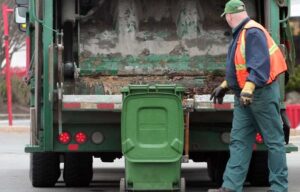
College Station, TX — Three out of 4 solid waste workers say their employer considers workplace safety and health important, yet only 1 in 4 feel encouraged to share safety-related suggestions.
It’s one of several conclusions drawn from a new study of psychosocial risk factors and organizational health in the solid waste industry.
Researchers from Texas A&M University and the University of Michigan surveyed 68 U.S. solid waste workers. Overall, participants reported a score of 6.1 (on a 10-point scale, with 10 being highest) on whether their employers are supportive of their personal health.
Over 50% said their supervisors encouraged healthy behaviors, such as opportunities to be physically active (79%) and safe work (59%). However, less than 30% of workers said employers provided opportunities to eat a healthy diet, quit smoking or manage stress.
Nearly 80% of workers reported high ergonomic risks, with jobs requiring frequent, repetitive and forceful hand movements, and 75% said that repeated lifting, bending, pushing or pulling are part of the job.
“The concept of Total Worker Health … has been slower to be embraced in workplace settings with more workers engaged in manual labor,” the study states. “However, it may be net beneficial for industries like solid waste management to familiarize themselves with TWH and to begin to adopt some TWH practices into their workplace as it has not only demonstrated a return-on-investment in terms of reduction of workplace injuries and illnesses, but also improved psychosocial factors of work and perceptions of organizational health that help retain workers and keep them satisfied and productive.”
The study was published online in the journal Scientific Reports.
McCraren Compliance offers many opportunities in safety training to help circumvent accidents. Please take a moment to visit our calendar of classes to see what we can do to help your safety measures from training to consulting.
Original article published by Safety+Health an NSC publication